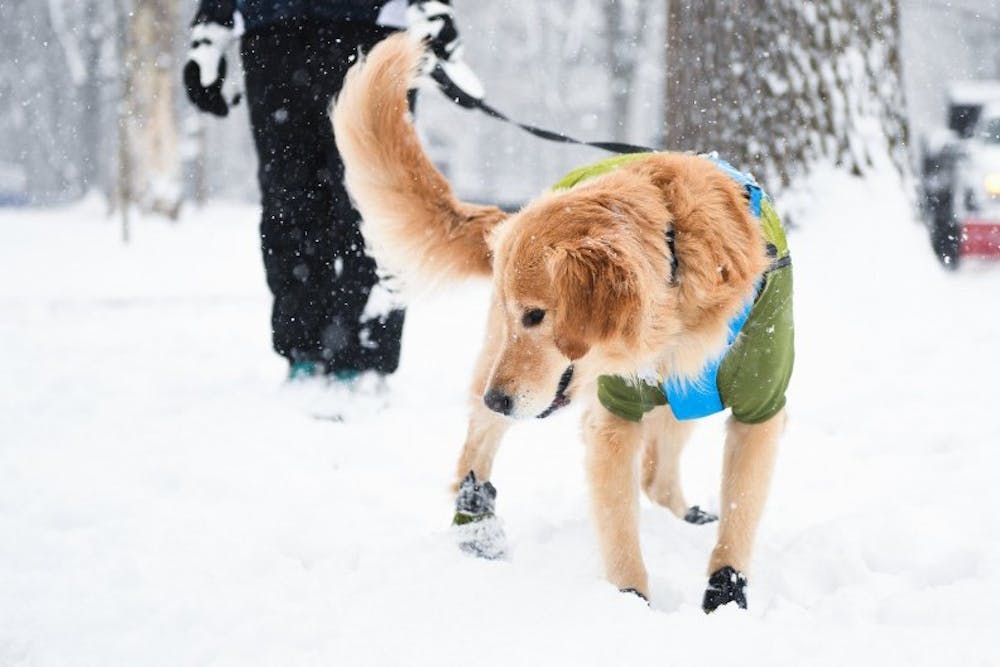
The University of Pennsylvania School of Veterinary Medicine study found that specifically trained dogs can sniff out COVID-19.
Credit: Chase SuttonIn a recent study, the School of Veterinary Medicine found that specially trained dogs can sniff out COVID-19 with 96% accuracy.
Senior author of the study and Penn Vet Working Dog Center Director Cynthia Otto and her colleagues have previously trained medical-detection dogs, allowing them to design a COVID-19 detection study. For this study, Otto worked with professor of Microbiology at Penn Medicine Susan Weiss to make COVID-19 samples inactive in order for dogs to be able to sniff them. The study was published in the journal PLOS ONE.
“Dogs have to be specific about detecting the odor of the infection, but they also have to generalize across the background odors of different people: men and women, adults and children, people of different ethnicities and geographies,” Otto told Penn Today.
Professor of Medicine at the Hospital of the University of Pennsylvania Ian Frank and Audrey Odom, chief of the Division of Pediatric Infectious Diseases at the Children’s Hospital of Philadelphia provided COVID-19 positive and negative samples for the study.
Due to workplace shutdowns at Penn Vet, the researchers worked at a trainer facility in Maryland, Penn Today reported. The researchers used eight Labrador retrievers and one Belgian Malinois for the study. None of the dogs had participated in medical-detection studies before.
The training was conducted in a series of steps. First, the dogs would be trained to detect a synthetic substance known as universal detection compound, or UDC, Penn Today reported. Researchers used a 12-port wheel with different samples and rewarded the dogs when they responded to the one with UDC. After the dogs responded normally to the UDC, the researchers trained them to identify urine samples from COVID-positive patients and distinguish them from negative ones.
Penn professor of criminology and statistics Richard Berk and the researchers concluded after three weeks of training, the dogs could identify COVID-19 with a high level of accuracy, Penn Today reported.
The study had some complicating factors, such as the dogs discriminating between actual patients and the inability to identify a negative patient who had recently recovered from COVID-19, Penn Today reported. Researchers concluded that the dogs' ability to avoid false negatives was lower because the study labeled a dog passing a positive sample without responding as a "miss."
The initial study motivated the team to do another investigation in which dogs were trained to use the odors on a T-shirt left overnight to identify COVID-19 positive, negative, and vaccinated individuals, Penn Today reported.
The new study consists of more samples than in the first one to give dogs a closer experience to a community setting, Penn Today reported. The researchers hope to use a larger number of samples in future studies so dogs are not trained with the odor of the same individuals.
“We want to make sure that we have all the steps in place to ensure quality, reproducibility, validity, and safety for when we operationalize our dogs and have them start screening in community settings,” Otto told Penn Today.
The Daily Pennsylvanian is an independent, student-run newspaper. Please consider making a donation to support the coverage that shapes the University. Your generosity ensures a future of strong journalism at Penn.
Donate






